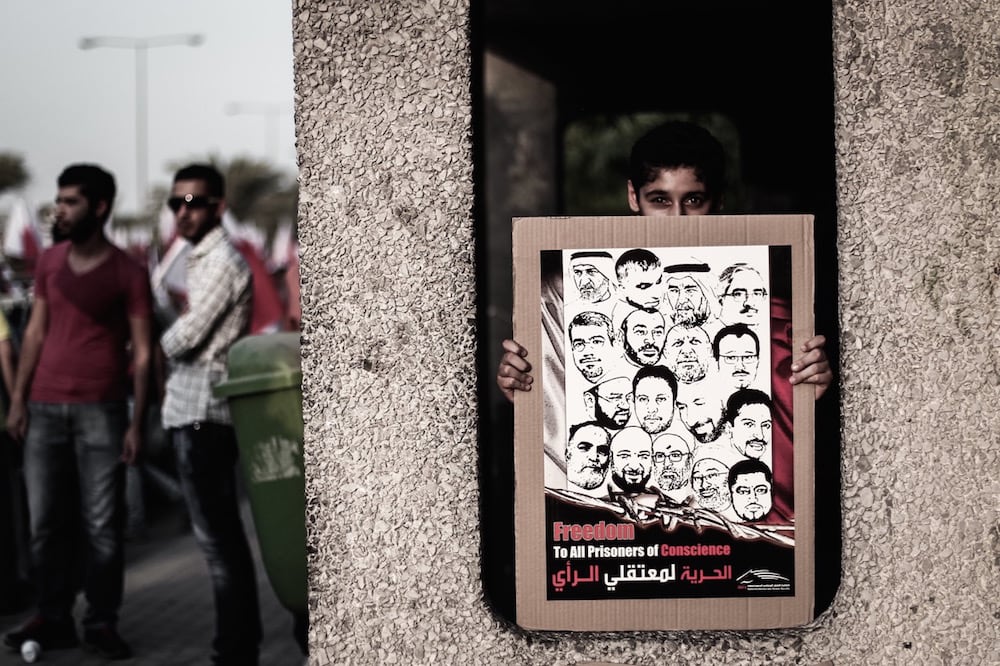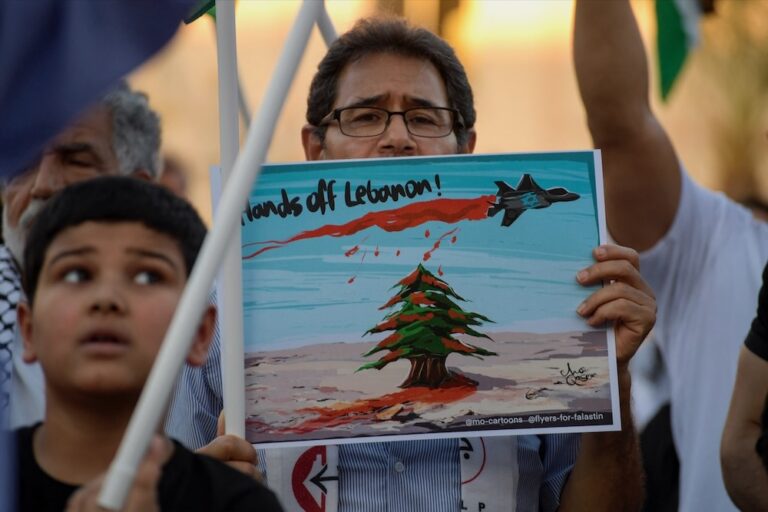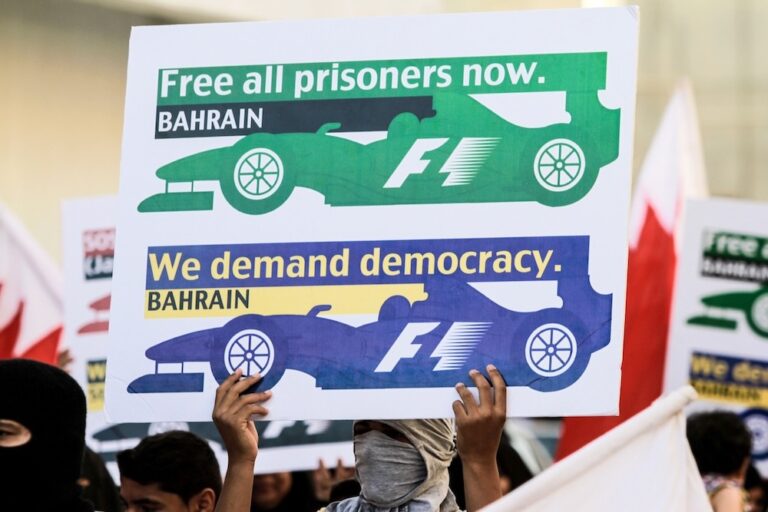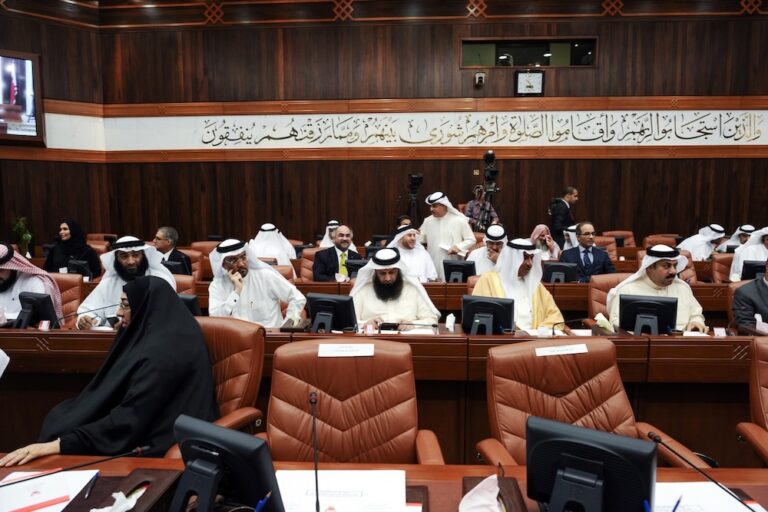In a joint letter, IFEX joins rights groups in bringing attention to the ongoing suppression and deterioration of human rights in Bahrain, and urges US Secretary of State Antony Blinken to fulfill President Biden's pledge to prioritise human rights when it comes to US foreign policy in the region.
March 4, 2021
Re: Prioritising Human Rights in Foreign Policy with Bahrain
Dear Secretary of State Antony Blinken,
We, the undersigned, are writing to congratulate you on being appointed the 71st Secretary of State under the leadership of President Biden and raise with you the alarming deterioration of the human rights situation in Bahrain and the central role played by the Trump administration in encouraging a resurgence of authoritarianism and escalating crackdown on human rights in the country. We urge you to ensure that human rights concerns are restored as a key feature of American diplomacy in the Gulf, in line with President Biden’s recent commitment to bring human rights to the heart of the new administration’s foreign policy in the Middle East region and his pledge to “put universal rights and strengthening democracy at the center of our efforts to meet the challenges of the 21st century.”
Suppression of human rights, the rule of law and civil society
As you are no doubt aware, 2021 marks the tenth anniversary of Bahrain’s 2011 Arab Spring uprising, an event which many had hoped would herald a new era of respect for human rights and the rule of law in the country. However, since the government’s violent suppression of protests, promised reforms have failed to materialize and the leaders of the protest movement continue to languish in prison including Hassan Mushaima, Abduljalil Al Singace, Abdulhadi Al Khawaja, Sheikh Mohammed Habib Al Muqdad and Abdulwahab Husain.
The situation has become particularly acute since the transition to the Trump administration in 2017, when an unprecedented government crackdown began in Bahrain that continues to this day. Within months of his inauguration, President Trump abandoned human rights conditions on arms sales to Bahrain, sending a clear message that his administration would place the pursuit of profit before people. During a meeting with King Hamad in July 2017, former President Trump further emboldened Bahrain’s rulers by publicly promising that “there won’t be strain with this administration.” Less than 48 hours later, Bahraini security forces opened fire on a peaceful sit-in in the village of Duraz, killing five people in the deadliest incident of political violence since 2011.
Since 2017, Bahrain’s civil society, once among the most vibrant in the region, has faced intimidation and harassment, and come under sustained attack. All independent media has been outlawed and all political opposition parties have been dissolved, with many of their leaders imprisoned and the country scoring a paltry 1/40 for political rights on Freedom House’s Freedom in the World 2020 report. Notably, Sheikh Ali Salman, the leader of Bahrain’s largest opposition bloc, has been sentenced to life imprisonment following trials on freedom of expression charges and spurious accusations of espionage. According to the Committee to Protect Journalists, at least six journalists are currently imprisoned for their work in Bahrain, while the country has fallen to a lamentable 169/180 on Reporters Without Borders (RSF) 2020 World Press Freedom Index.
In addition, Bahrain’s government has increasingly turned to repressive cybercrime legislation to further restrict civic space, with prominent defense lawyers, opposition leaders and human rights defenders and activists all prosecuted over their social media activity since 2018. Amnesty International has also reported on how Bahrain’s rulers seized on the COVID-19 pandemic “to further crush freedom of expression”.
Targeting of Human Rights Defenders and Dissidents
Last December, you noted that “[i]n too many countries, people are imprisoned and face torture or death for speaking their minds, reporting the news, or demanding their rights.” This statement sadly reflects the situation in Bahrain over the last four years, where human rights defenders and political activists have borne the full brunt of political repression. Prominent human rights defenders including Nabeel Rajab, and Ebtisam Al-Saegh have faced arbitrary arrest, torture and other ill-treatment, and lengthy prison terms simply for carrying out their work and peacefully exercising their human rights. Hundreds have been arbitrarily stripped of citizenship, while activists who continue their work from exile risk reprisals against family members who remain in the country. These include Sayed Ahmed Alwadaei, director of the UK-based Bahrain Institute for Rights and Democracy, whose brother-in-law Sayed Nizar remains imprisoned in what the UN have declared “acts of reprisal” for Alwadaei’s human rights work in the UK.
Bahrain’s prisons remain overcrowded and unsanitary, and human rights groups have called on the government to release those imprisoned solely for peacefully exercising their right to freedom of expression in light of the risks posed by COVID-19. Prisoners are frequently subjected to humiliating treatment and denied adequate medical care, in violation of Bahrain’s international human rights obligations. Among the most prominent prisoners currently incarcerated in Bahrain are high-profile political opposition leaders, activists, bloggers and human rights defenders convicted for their roles in the 2011 pro-democracy protests. These include Abdulhadi Al-Khawaja, Hassan Mushaima, Abduljalil Al Singace and Sheikh Mohammed Habib Al Muqdad, all of whom suffer from a range of chronic medical conditions, as well as human rights activists Ali Al Hajee and Naji Fateel .
In 2017, Bahrain abandoned their de facto moratorium on the death penalty and has since conducted six executions, five of which were condemned as arbitrary by UN Special Rapporteur on extrajudicial executions Agnes Callamard, in 2017 and 2019. In a telling example of the pernicious effect of Donald Trump’s regressive policies, when challenged over the execution of two torture victims in July 2019 amid international outcry, Bahrain explicitly referenced the U.S. government’s maintenance of the death penalty, just days after the Trump Administration’s decision to resume federal executions. According to recent research by the Bahrain Institute for Rights and Democracy (BIRD) and Reprieve, 26 death row inmates currently face imminent execution in the country, nearly half of whom were convicted on the basis of confessions extracted under torture in cases related to political unrest. These include Mohammed Ramadhan and Husain Moosa, whose death sentences were upheld in July 2020, despite the UN urging Bahrain to quash their convictions.
Bahrain’s foreign policy in recent years has had negative consequences for human rights beyond the country’s borders. Bahrain has been an enthusiastic participant in the war in Yemen, which has now killed over 100,000 people. Despite the UN finding that war crimes have been committed by all sides in the Yemen conflict, under President Trump, Bahrain secured over $8.5 billion in arms deals. This means that American military hardware has likely been deployed by Bahrain in Yemen, where the Saudi-led coalition’s aerial bombardment and blockade has pushed 10 million people to the brink of famine. Your recent decision to end U.S. support for offensive operations in Yemen and freeze U.S. arms sales to Saudi Arabia and the UAE pending a review is a positive first step, which would be strengthened by extending the prohibition to Bahrain and other coalition partners.
Our Recommendations
As the evidence outlined above demonstrates, the Trump administration’s foreign policy toward Bahrain over the past four years has had a profoundly negative effect on the advancement of human rights and the rule of law in the country. In light of this, we humbly recommend that you use your good offices and leadership position to consider the following when determining your foreign policy toward Bahrain:
- Make good on your pledge to “stand with human rights defenders here in the United States and the world over” by using maximum leverage to secure the release of all those imprisoned in Bahrain solely for peacefully exercising their rights to freedom of expression, peaceful assembly and association;
- Pressure Bahrain to end the use of torture and other ill-treatment, and to tackle the culture of impunity by ensuring effective mechanisms for victims of abuses to receive justice and effective remedies;
- Pressure Bahrain to rescind the ban on opposition parties, civil society groups and independent media and encourage the development of civic space and full respect for the human rights of everyone in Bahrain;
- Pressure Bahrain’s government to take genuine steps towards justice reform and the restoration of human rights and the rule of law;
- Reinstate restrictions on arms sales to Bahrain pending an improvement in the country’s human rights situation; and
- Use the Leahy Laws and other mechanisms to restrict security and military assistance to Bahraini security force units that are found to violate human rights and to promote justice in individual cases.
We hope that your administration will ensure that human rights are once again placed at the center of US foreign policy in Bahrain and the wider Gulf region.



